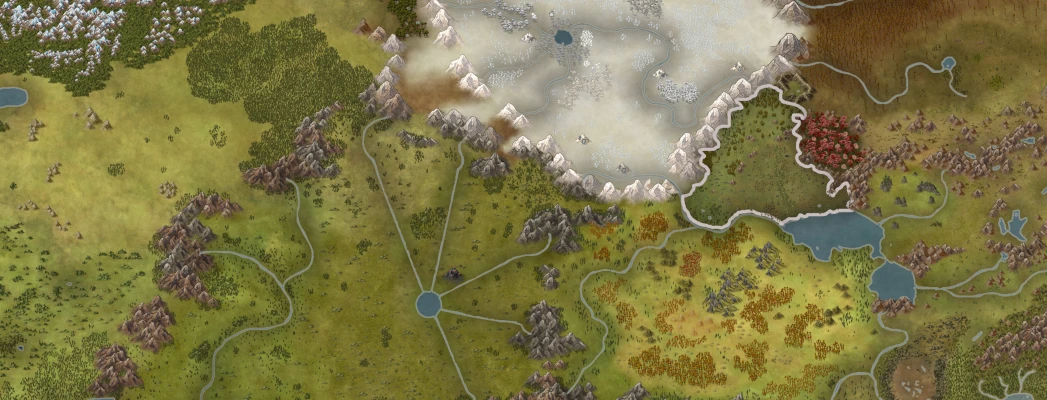Culler
The position of culler was a job that existed within the Grannrormrlen from around the 7th century Re up to the empire's collapse in the 9th century. The existence of beast slayers of some variety is thought to have begun organically in the late 6th century, when villagers within the Grannr started to be forced to take up arms to defend themselves from wandering War Beasts. As the scale of this problem continued to grow, beast hunting was eventually formalised into an official position within the Grannrormrlen, and the individuals practising it came to be known as cullers.
Culler
Date First Established: Late 7th/early 8th century Reunion
Currently Practised: No
Discipline: Martial
Rarity: Rare even at the height of its prevalence
Social Ranking: Ranged from quite high if the culler was reputable, to exceedingly low if not
Currently Practised: No
Discipline: Martial
Rarity: Rare even at the height of its prevalence
Social Ranking: Ranged from quite high if the culler was reputable, to exceedingly low if not
Role & Duties
Cullers, as they existed within the Grannrormrlen, were a non-standard martial role. They held a unique position as the only martial profession in the empire to exist outside of the traditional military hierarchy; which governed the other main two roles of soldiers and Esoterikii. Unlike soldiers, cullers were never dispatched to fight on the front lines, either in the Grannr-Leskeln War or as part of other conquests. They were similarly exempt from being deployed as part of suppression activities or operations on/around the Grannr borders.Instead, their sole duty was the extermination of troublesome creatures that threatened the infrastructure and people of the empire. Almost all creatures marked for hunting by cullers were escaped War Beasts; species of animals created via use of Arcana to be employed as tools in the war against the Leskeln. Small numbers of these creatures often escaped from captivity, where they would then become feral and in many cases establish new breeding populations. Any feral War Beasts were extremely dangerous, and could kill people or cause extensive damage if left unchecked.
The role of a culler was therefore more similar to that of a hunter than a regular soldier; consisting in large part of tracking, and then utilising various techniques to kill cornered beasts. The danger posed by War Beasts was much higher than that of ordinary animals, and as such, part of what separated cullers from ordinary hunters was the need for them to have learned specialist techniques in order to safely defeat their prey. Part of this included using different equipment; in addition to whatever
Contemporary Perception
For much of their existence, cullers were viewed generally negatively by the other people of the Grannrormrlen; often being seen as little better than state-owned brigands. This perception seems to have stemmed from the actions of many cullers, who would frequently demand to be given hospitality by local villagers while out on hunts; often times under the threat of violence. Stories abound from the period of cullers stealing from villages under the guise of requisitioning additional supplies, or as forced payment for their work. Various sources also allege reports of cullers sexually assaulting villagers, and some going so far as to moonlight as highwaymen when not on jobs. For these reasons, they appear to have been much disliked by the general population. It is also unclear from records how effective their efforts at reducing the population of escaped War Beasts actually were. Attacks by feral War Beasts seem to have remained a frequent problem all the way up to the death of Forfir in 863 Re; suggesting their work may not have actually been that useful at all.Decline
Cullers are generally thought to have relied on three things in order to be effective: support in the form of supplies and equipment from the state, the ease of transport facilitated by the Grannr's large size, and the common language shared throughout the empire. When the Grannrormrlen split into the Western Grannrormrlen and the Eastern Wyrmrealm after Forfir's death, both states drastically reduced the amount of funding set aside for the activities of cullers. The empire's split also drastically limited the effective range of cullers; confining them inside the boundaries of their respective nation, when they had once been able to be despatched anywhere within the Grannr's limits.
The final nail in the coffin was the linguistic drift that began to occur to the Granbastin tongue: Where it had previously been maintained by the Grannr's office of language, no such institute survived in either the west or the east, and so Granbastin rapidly began to evolve and diversify across the continent. This meant that a person travelling from one region of Pretheya to another could no longer reasonably expect to be understood by the people in another region, which rendered the local connections cullers previously relied upon to perform their work impossible.


